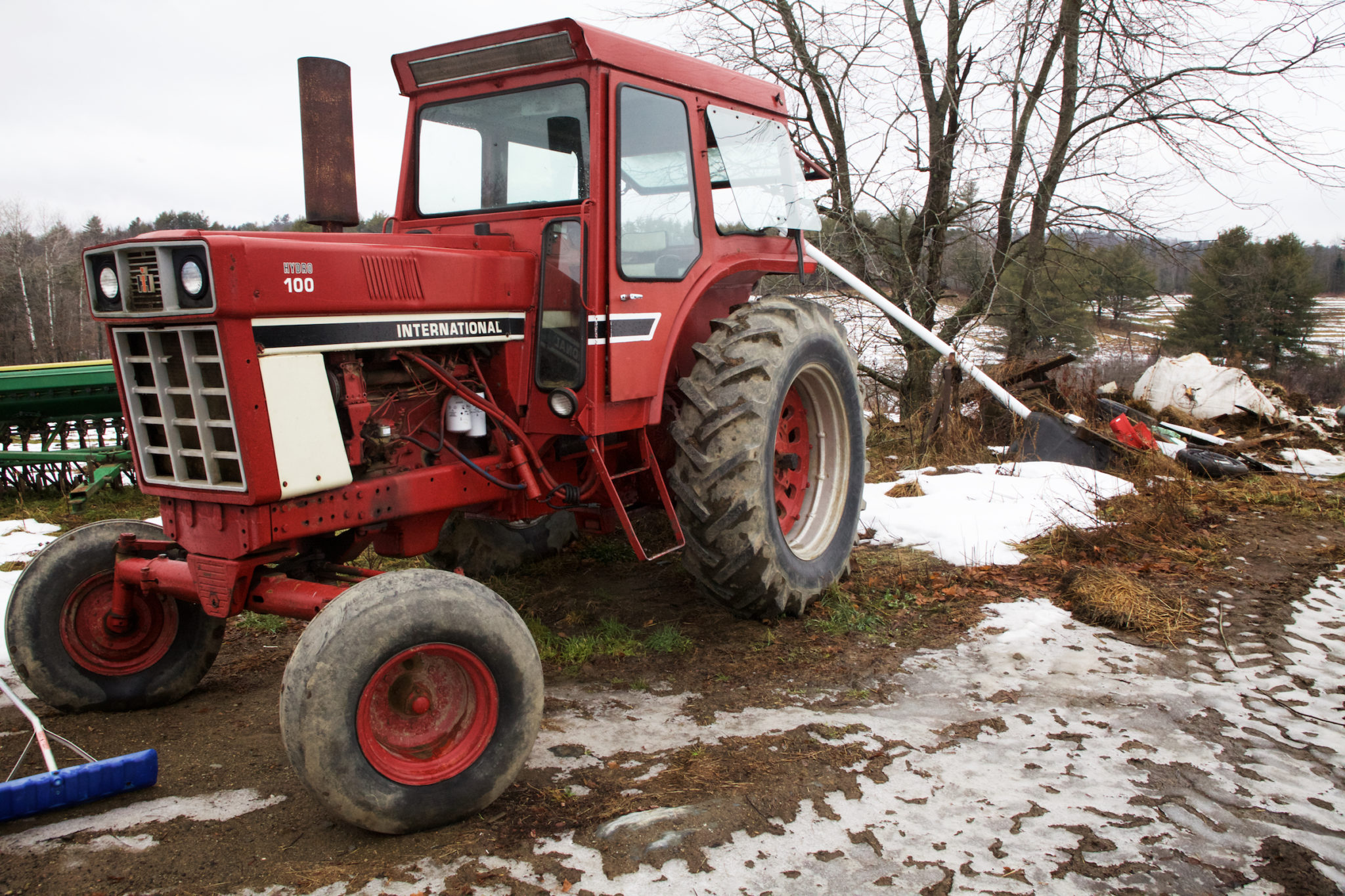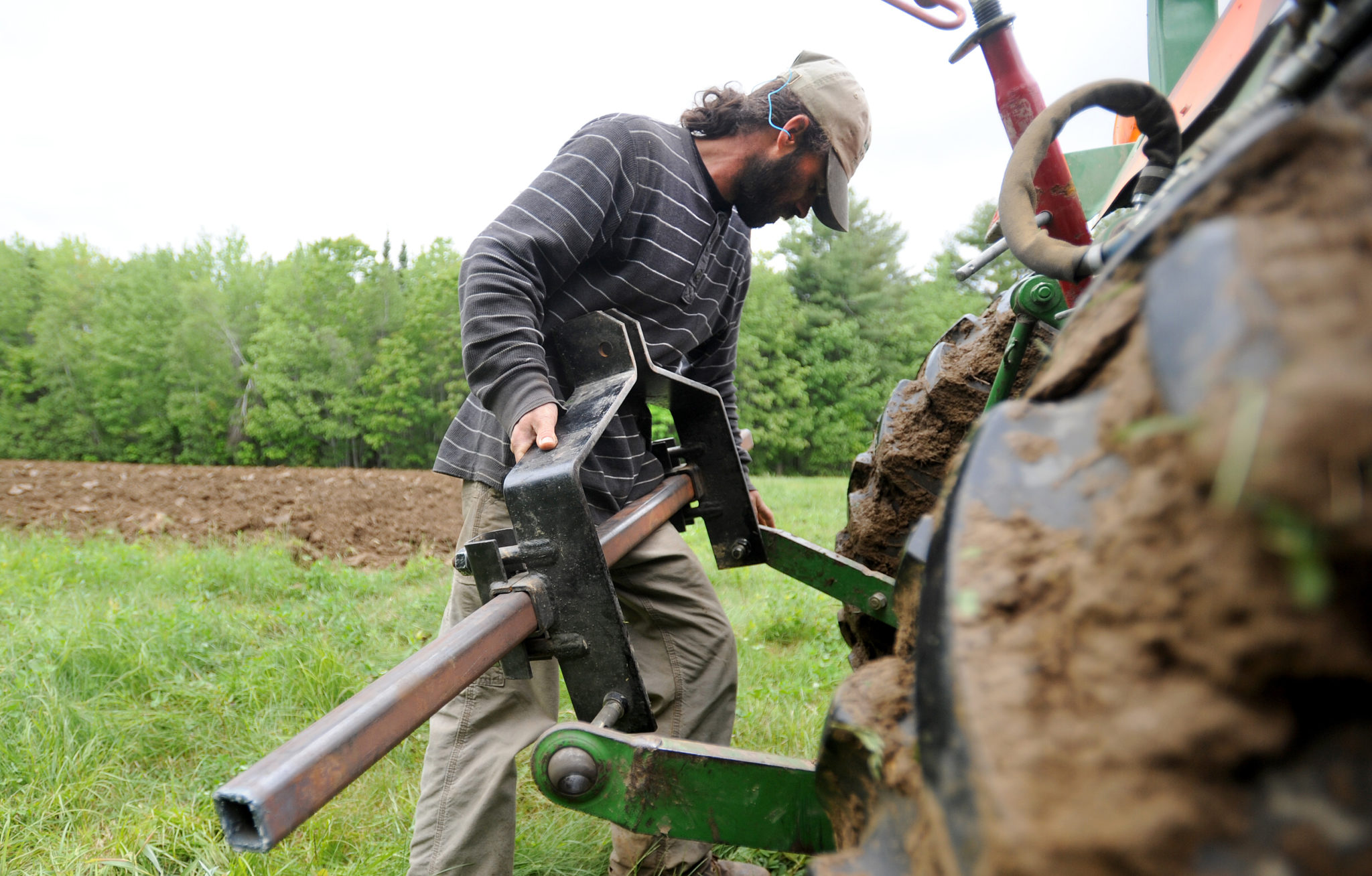What to look for in a farm tractor
Next to the land itself, the most expensive thing a homesteader or small farm operator can purchase is a farm tractor.
It can also be one of the most necessary purchases for a modern grower.

“Tractors do a lot of the farm work and saves on human labor,” said Gary Balducci of Wishing Well Acres Farm in southern Maine. “It can be hard to find people to work on a farm and tractors take the place of farm hands.”
Balducci, the proud owner of three working tractors, has been teaching tractor safety courses for the University of Maine Cooperative Extension for more than two decades and said today’s tractors are safer, easier to operate and smaller than those made before the end of the last century.
What kind of tractor do I need?
Balducci recommends assessing what exactly you want to do with a tractor before going out and buying one.
“The tractor you need is based on the size of your farm and for what uses you have for it,” he said. “For a homeowner or small farmer in Maine, a compact tractor is all you really need.”
Compact tractors are basically smaller versions of the large agriculture tractors seen on bigger farms.
These smaller tractors often match or exceed the horsepower of much larger, older tractors and are capable of doing some heavy lifting when it comes to homestead landscaping, digging, snow removal, hauling, mowing and other farm chores. These tractors are also four-wheel drive, unlike the older two-wheel drive models that can become stuck in mud or snow.
In terms of selection, Balducci said it’s more important to pay attention to the tractor’s horsepower — or HP — rating than actual physical size.
Rich Tabor, Grazing and Agriculture Economic Development Specialist with New York Cooperative Extension Service, recommends between 45 and 75 HP tractors for small farmers or homesteaders.
“One of the first things that I ask a new farmer is “What do you want and need to do with a tractor, and, how much can you afford to spend?” Balducci wrote in an article for Cornell University’s Small Farms Program.
What attachments do I need?
When it comes to tractor-powered farm implements, there is an attachment for almost every job.
“A bucket loader is a must,” Balducci said. “That’s the implement that is going to do the heavy lifting for you.”
Mounted on the front of the tractor, bucket loaders can scoop, lift and carry a lot of things from hay to water to manure. In the hands of a practiced operator, the bucket can be manipulated to smooth dirt, dig trenches and backfill holes.
From there you can add implements like “brush hogs,” — a sort of giant lawn mower pulled by the tractor for cutting brush in fields, a blade that mounts on the back of the tractor for grading roads or driveways, a backhoe for serious digging projects, a front or rear mounted snowblower, post hole digger and a pallet fork for lifting items loaded on pallets.
“These days attachments are made to go on and off easily,” Balducci said. “You can use your mower then take it off in just a few minutes and attach a grader to go work on your roads.”
How are the implements powered?
Modern tractors all use one of three, or a combination of three, power sources to lift, lower, turn and operate attachments — Power Take-Off, hydraulic fluid and three-point-hitches.
The power take-off — or PTO — is a cylinder that extends out of the front or back of the tractor and attaches directly to an implement. The PTO uses a series of gears and cogs to transfer power from the tractor’s running engine to the implement.
Hydraulic fluid power operates by forcing the fluids under high pressure through rubber pipes or lines connected from from the tractor to the attachments.
Three-point hitches are mounted to the back of a tractor and is the most common device for attaching implements to a tractor. Shaped like a triangle or the letter A, and as its name implies, the hitch connects to an implement like a plow or mower at three points — top and either side.
Gas vs Diesel?
Balducci and Taber agree diesel fuel is the only way to go when it comes to feeding your farm tractor.
“Not many farm tractors come with gasoline engines anymore,” Taber said. “Older tractors from the sixties and early seventies with gasoline engines can be quite aggravating to keep running smoothly, especially the ones made before electronic ignition.”
Unlike a gas-powered motor, diesel engines can run for hours on end without heating up, Balducci said.
“You can hook up a log splitter to your diesel tractor and let it run all day,” Balducci said. “But a gas motor would heat up and can overheat and damage the motor if it runs all day.”
Diesel does have a reputation for solidifying or “gelling” if it gets too cold, but Balducci said modern diesel is a bit more cold-weather tolerant.
If you are operating your diesel tractor in extreme colds, there are fuel additives on the market that can be mixed with the diesel fuel in the tractor to prevent it from gelling up.
Safety
Never, ever underestimate how dangerous a tractor can be, regardless of how many safety features it has on it, Balducci said.
“What scares me the most is people buy a tractor, it’s dropped off and you are on your own,” he said. “It’s not the same as a new car and you really have to respect it for what it is.”
If not covered with the appropriate safety shields, fast moving parts like the PTO can harm or even kill the most experienced operator.
Tractors also have a high center of gravity, which means they can tip over more easily than a car or truck, Balducci said.
All new tractors come equipped with roll-over protection systems, or roll bars that extend up and over the driver and which help prevent serious injury from being crushed if the tractor overturns,
“A lot of times people will take those bars off or lower them so the tractor fits in a garage,” Balducci said. “Then they don’t raise them ever again when using the tractor [and] that’s a bad habit.”
How do I take care of my tractor?

Every tractor is sold with an operations manual that outlines daily, weekly, monthly and annual maintenance requirements.
Unlike cars that base these schedules on mileage, tractors operate in terms of hours in use.
“You want to pay attention when to change your oils and fluids,” Balducci said. “If your tractor is working really hard and long hours, you want to follow a pretty stringent program.”
For the more casual operator who runs their tractor only a few hours a week, those fluids will last a lot longer and require fewer changes, he said.
Older tractors have often been used and abused, Balducci said, and buying one can mean inheriting mechanical problems.
“A lot of times it’s stuff the former owner knew needed to be corrected but put it on the ‘to do’ list and never got around to it before selling it,” Balducci said. “Then someone buys it, something fails and that is how accidents can happen.”
How much will a tractor cost?
“Depending on the age, condition and features present, you can expect to pay at least $5,000 [and] up to $20,000 for a good used tractor,” Taber said. “In general, the more features, the more costly the machine will be.”
Taber said he would certainly consider purchasing a used tractor, but not too used or old.
“I would want a tractor made in the latter part of the 20th century, at least from about 1970 onward,” he said. “Older tractors made after World War II still abound, but lack many of the needed operational and safety features expected today [and] these type of tractors can be very dangerous.”
Balducci said many tractor manufacturers offer financing incentives that make purchasing a brand new tractor a viable option.
“I really recommend to go check out a new tractor,” he said. “There are some great deals to be found.”

I agree with you when you said that tractors can do a lot of the farm works that can save a huge amount of human labor as it takes the place of farm hands. My grandfather is planning to operate our unused land in the countryside for agriculture, and I think it will be best if he utilized the use of tractors and other machinery for higher productivity. Thanks for the valuable article.
Thank you so much! I can’t wait to hear about your grandfather and his land… happy tractor trails to you all!
Thanks for pointing out that compact tractors often match or exceed the horsepower of much larger, older tractors and are capable of doing some heavy lifting. My dad is thinking about getting a farm and is also trying to determine what kind of tractor he would need if he got one. I think that it would be smart for him to go with a compact tractor to start with because it seems like it would be able to handle a lot of different jobs and that would be good especially when he is first starting out.
Thanks for the tip that I should get a bucket loader attachment on the tractor that I should buy for my farm. I believe they still have those kinds of accessories on used equipment that I can buy from a supplier. It might be a good idea to ask them first so I’ll know if it’s worth buying or not.